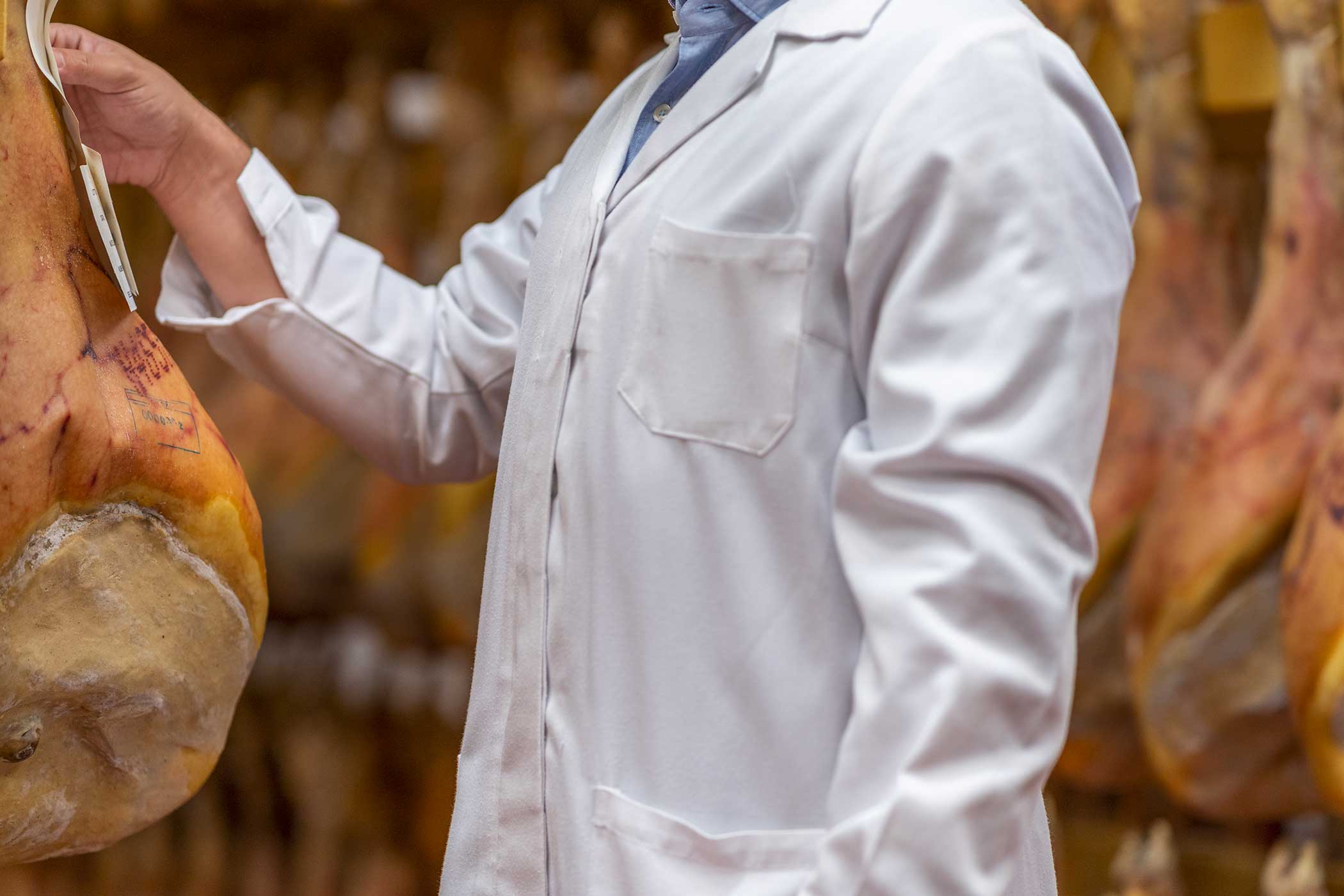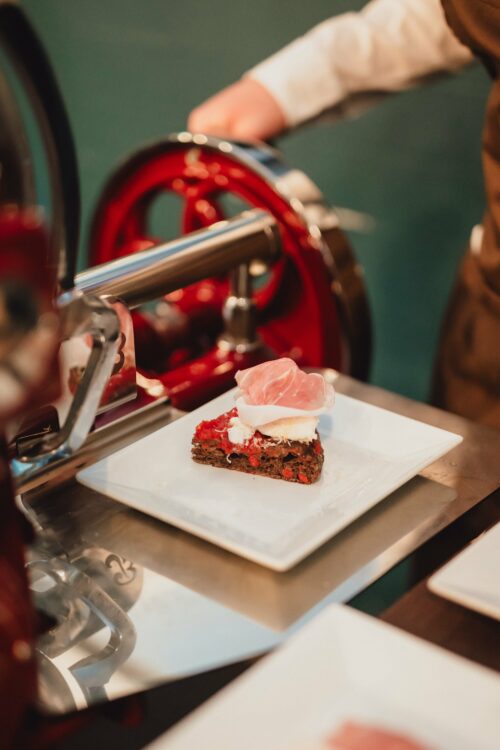It is plain to all how important the issue of food safety has become. It is now considered essential in the relationship between producer and consumer to ensure the safety of the product and of the process to make it. In this respect, although some sensitivity towards the subject has recently developed, there is actually tangible evidence that in 1962 the issue was seriously taken into account. In that year, thanks to the teamwork of Fao – the UN intergovernmental organization which, among its many activities is responsible for worldwide good nutrition – and OMS – the world health organization – the Codex Alimentarius was born.
Codex Alimentarius, food safety and Prosciutto di San Daniele
What’s that? In short this text is “a set of guidelines and codes of best practices, internationally standardized, which helps to improve the safety, quality and fair practices in the food trade worldwide”. In other words it’s the food safety handbook. What does this text ensure in relation with San Daniele PDO?
Warranty
The safety of San Daniele PDO is ensured by the Product Specification that determines its raw materials (purely Italian pork thighs, sea salt) and the manufacturing process (slow maturing), as well as all the checks carried out throughout the supply chain. The preparation method of prosciutto di San Daniele, while evolved over time with the introduction of machinery and equipment, closely corresponds to the one handed down over the years. The chemical and physical properties leading to the end product are entirely natural, given by the combined action of salting and dehydration. As if this weren’t enough, as indicated by the Product Specification, San Daniele PDO.
is also nitrite and nitrate-free, because no additives or preservatives are added. The final branding on the rind is just a certification.
Best breeding practices
The basis of the best breeding practices is a correct and respectful pig breeding. The measures relating to pig farming, approved by the Health Ministry, have it that breeders and farms must always comply with the animal welfare requirements. On this basis, more and more attention is paid to the time animals spend in the farms, everything is cared for in detail, including their diet! According to the Product specification the pigs’ diet includes vegetables, noble cereals and soy.
Along this line, since 2016 a project emerged, with the aim of promoting and supporting a new kind of breeding both ethical and sustainable, respectful of animals and environment. The activity aims at joining various basic aspects which help to ensure a healthy and environmentally friendly product. The purpose of this project was to emphasise the distinguishing features of the PDO.
Prosciutto di San Daniele, its fully Italian spirit (born, bred ans slaughtered in Italy), the strong focus on the pigs’ welfare, the responsible use of medications and the reduction of emissions to the environment. We therefore aim to define optimal procedures which may consolidate these good practices.
Controls and safety
First rule: the business operators must make sure that the food is safe. Regarding this, we must point out that all 31 producers of Prosciutto di San Daniele, in compliance with current legislation, carry out various microbiological and physico-chemical tests to ensure the wholesomeness of their product. During 2021, 1779 microbiological tests and more than 1500 physico-chemical tests were carried out in the 31 prosciutto factories, throughout the production process.
Knowing what is safe
The way we gather information on the topic is just as important. The emphasis on correct information goes along with the ability to communicate properly key elements and knowledge. Making clear to consumers how much is done to offer a heathy and safe product is crucially important. At Consorzio del Prosciutto di San Daniele PDO we work on several aspects of this issue with this magazine and on our social pages. Not to mention the training and information carried on at the various schools, during fairs, during our Aria di Festa, and all over Italy (such as at Fico, for example). Consumers should learn to know healthy food and we are committed to this purpose.
Working together for food safety
This job is really complex and it would be difficult to do it alone. It must therefore be a joined effort, we’ve all got to work for healthy food and good health! The suppply chain comes first, from the breeding to the prosciutto factories and the feed mills. All this guarantees, thanks to the cheks carried out, that our prosciutto is healthy, safe and ethical. We should also mention the close cooperation with the official supervisory bodies, (such as the Veterinary service), research institues, Institutions (up to EU), all these with the purpose of ensuring the safety and quality of Prosciutto di San Daniele.
Cheks at the prosciutto factories
Let’s have a look at all the own-checks that every prosciutto factory is required to ensure.
The first check is carried out when every single pork thigh is admitted to the factory for the production of Prosciutto di San Daniele. These controls are performed both in compliance with the current hygiene and sanitary legislation and with the rules set by the
Prosciutto di San Daniele and they are mainly visual. Cheks are also made on the weight and on the core temperature of the pork thighs. If the thighs fail to comply with any regualtions, they will never be used to make Prosciutto di San Daniele.
There are cheks also during the whole production cycle, involving the product and the production process.
In addition, there are the physico-chemical tests (moisture content, salt and protein breakdown) and sensory analyses (one in a thousand on the monthly production) since the eleventh month of curing and before the mark of conformity is applied. The parameters assessed are: colour of the lean and fat part, penetration of the fat in the lean part and taste.
Visual, olfactory (spiking) and texture checks are carried out on the prosciutto before the branding.
Microbiological tests are performed on the prosciutti before they are sold and also on the work premises, in compliance with Reg. Ce 2073/05 e s.m.i and with third countries regualtions towards which businesses are allowed to export.
The road is windy but clear: a healty and good product must be safe above all.






